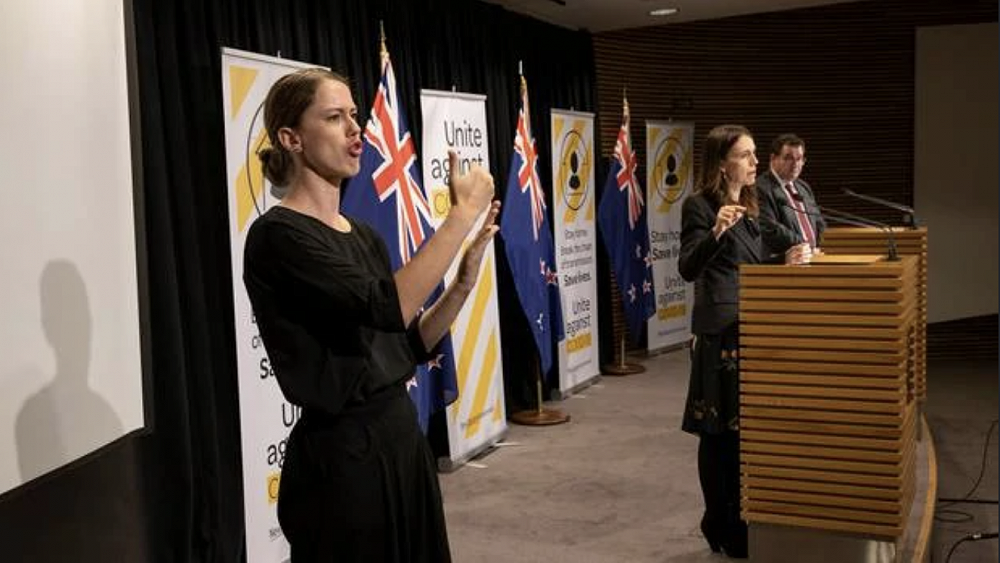
Ex-Naylander signs up for Covid briefings
You might recognise Jenn Gilbert even if you have never met her. She was a student at Nayland College from 2000 - 2004. While at Nayland, she discovered a passion for sign language, which has led to her becoming a sign language interpreter for the Prime Minister's televised Covid-19 briefings. We caught up with Jenn, to see how she turned her passion into a career.
What have you been doing since you left Nayland College?
Sign Language interpreting! I started an Arts degree at Victoria University, and in that degree were NZSL (New Zealand Sign Language) papers. I decided I wanted to be an interpreter, so I moved to Auckland to study for this qualification in 2007 (AUT is the only university that offers an interpreting program.) I have been a qualified interpreter since 2009. I'm also now married with two young children.
How did you get into sign language?
At Nayland College I was interested in sign language and taught myself from an old dictionary. I did a sign language performance to a Brooke Fraser song at Nayland's Got Talent one year. Afterwards, a teacher told me I should follow my passion! So I did. I took night classes in Nelson, then studied at university. I loved the language and the community.
How did you get to do sign language interpretation for the Prime Minister's Covid briefings?
We work under a non-profit agency and with a Deaf community who have lobbied for many years for access to NZSL. This began with NZSL becoming an official language in 2006 because of hard work from the Deaf community. After the Christchurch earthquakes, the Deaf community was left without access to information for 3 days before the community lobbied and interpreters were provided. Over the past 3 years, interpreters have become more normalised for post cabinet press conferences and other media briefings. I work with a team of skilled and experienced media interpreters in Wellington and we put our hands up to help with this work.
Was there much preparation involved for those briefings - or did you just need to react to what the speakers say?
The interpreting process involves concept for concept translation. So we hear a concept, understand it, then sign it (and the other way round if we are voicing for a Deaf person.) This process is very taxing and takes a lot of cognitive power- which is why you will see interpreters swap every 15 minutes. We spend many hours preparing and making sure we are up to date on the latest information, and we make sure we have days off in between the high intensity media jobs.
We are always trying to improve our output, and it's never a perfect process. We are one part of the information the Deaf community receives- there is also information in NZSL created by Deaf people and Deaf organisations. So we are one piece in the puzzle of access.
What other situations are you called upon to offer up sign language interpretation?
Most of my interpreting work is nothing like the media work. The media work is unique and quite rare - not a real picture of how interpreting works! Most of my day to day work is interpreting in university lectures, meetings, GP appointments, conferences, WINZ appointments, workshops and so on. The landscape has changed with Covid-19 and now a lot of our work is done via Zoom which presents a new set of challenges.
Where should someone start if they want to learn sign language?
Check out lhttp://www.learnnzsl.nz. There will probably be adult education classes in Nelson you could attend, as well as NZSL papers at Victoria University.
How did Nayland College prepare you for what you are doing now?
I loved media studies and journalism with Miss Steele. Both subjects opened my eyes towards looking below the surface of messages and communication. I also loved music with Mr Lukies and I think that the performance aspect probably helps in some way with my work now.
Thinking back now, what do you remember most fondly about Nayland College?
I loved the range of subjects in my senior years- I got to try a lot of topics out. I remember supportive teachers and friend groups.
